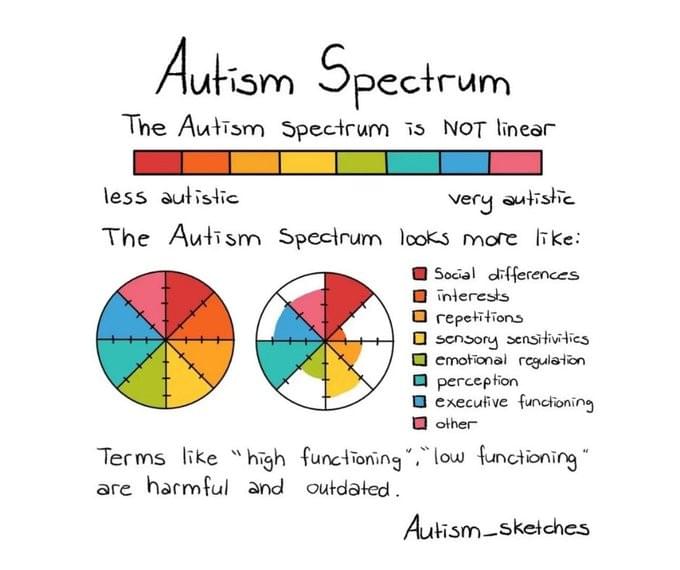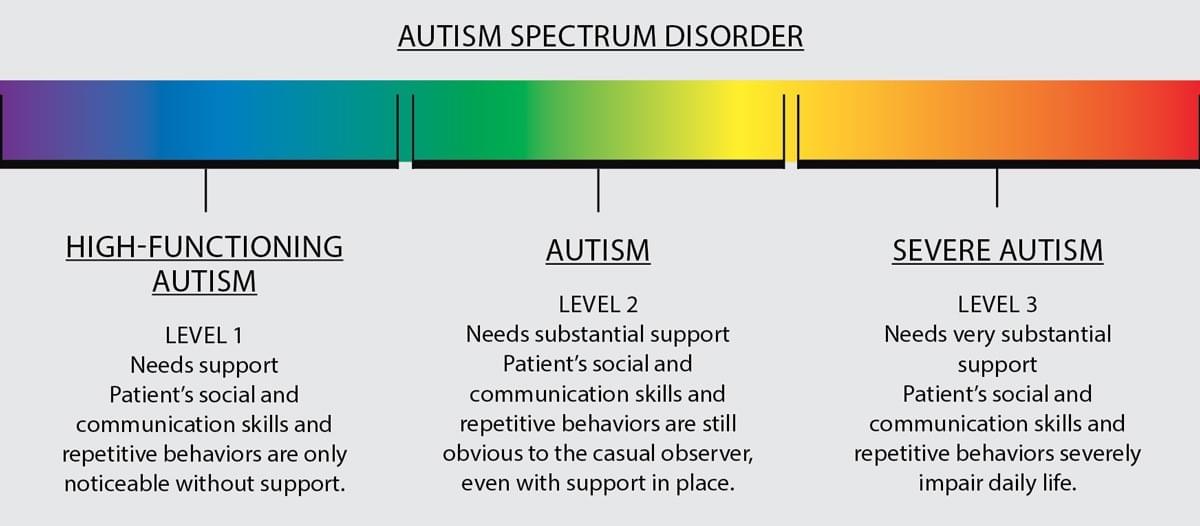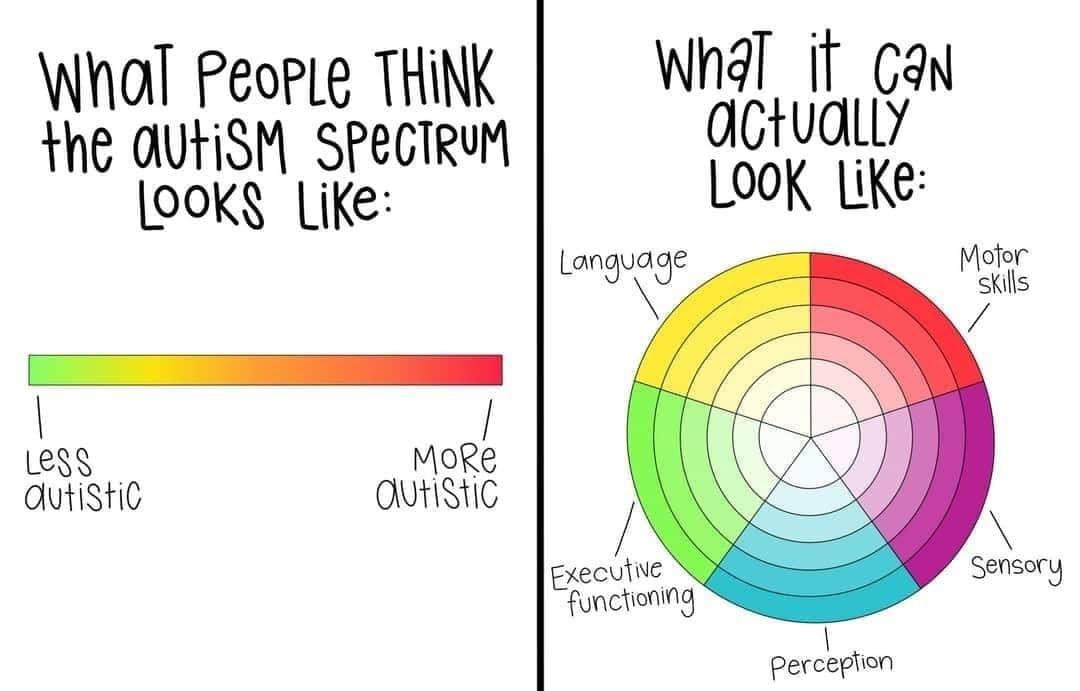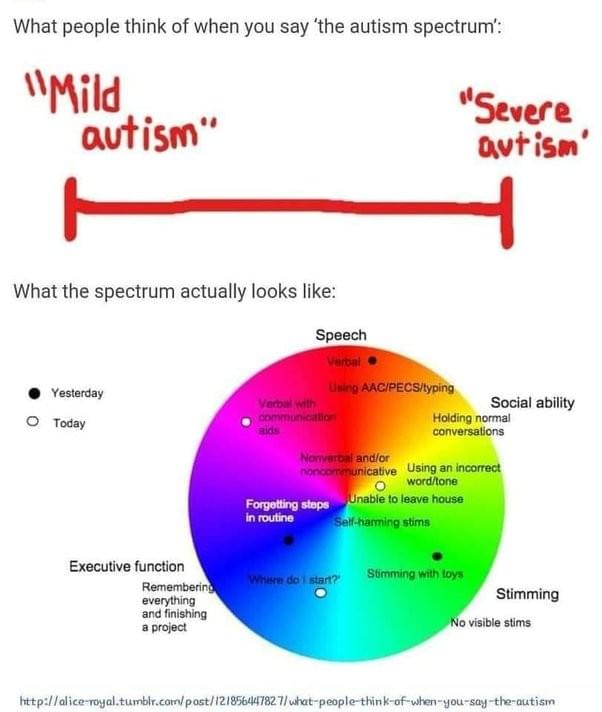The non-linearity of the Autism Spectrum

This is what the linear model of autism looks like.

So where are you?
In truth, a little bit here and a little bit there. A year on from diagnosis and it is far from clear how much support I need and in what areas. My genius for evasion and survival makes me hard to pin down. Although I was described as "high functioning," this has been an incredible performance on my part, performed at a distance from social connection for the very reason I have known all along how severely impaired I am with respect to social interaction and communication. I am good in short bursts and so limit my social involvement to short bursts, ensuring that I go under the radar. Isolation ensures that there is no one around to do the detecting for you.

This is what the non-linear reality of autism looks like.

You can understand the reasons for the linear model. There is a need to simplify an incredibly complex condition so as to create a general rule of thumb for addressing the different needs of people on the spectrum. The danger with a condition as complex as autism is that accurate definition may be won at the expense of ractical effect.
I do some things well, and struggle badly with others. I excel in some areas, I barely exist in others. The distinction between “high functioning” and “low functioning” conceals much more than it reveals, and distorts even that. I was described as “high functioning,” hastening to add that my assessor quickly added the necessary riders and qualifications. As Laura Tisoncik writes, “the difference between high functioning autism and low functioning is that high functioning means your deficits are ignored, and low functioning means your assets are ignored.”
And the problem with that is that it leaves someone like me forever having to stress the debilitating, even disabling, nature of my deficits, with the result that I come to be accused of being “difficult” and “seeking excuses for failure.”
I have had to learn to stop being angry and protesting back and start chalking up another encounter with another know-nothing know-all. I congratulate myself on no longer wanting to settle such scores. I should now try to stop keeping score.

